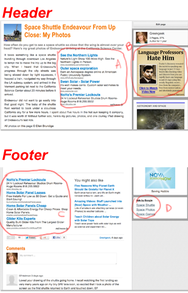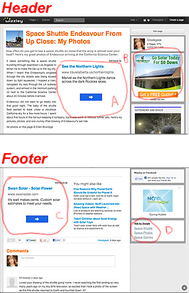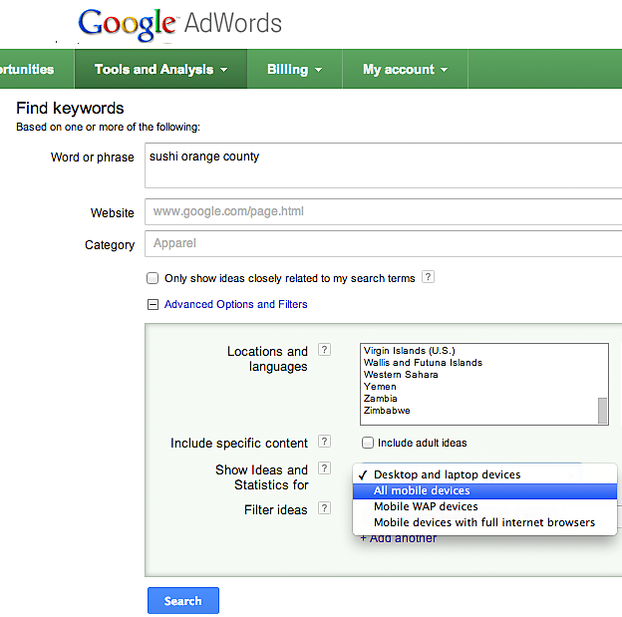This means we have to adjust strategies. I think that many articles on single products may suffer: they're targeted at shoppers who already know what they want.
On the other hand, there's one kind of article that shopping apps, online stores, and Google Shopping cannot replace: articles that compare a group of products or (better) give a "top ten" style list. For example:
- Top/Best [Product type] of [Year] (e.g.: "Top Tablets of 2012")
- Top/Best [Product type] for [Purpose] (e.g. "Best Shampoos for Dandruff Control")
- Five Great [Product type] Reviewed (e.g. "My 5 Favorite Drawing Apps")
In these cases, the shopper is earlier in the buying process and is still trying to figure out what to buy. They may not know what kind of product will satisfy their needs. Or perhaps they've got a general idea what they want, but when they go to Amazon, they find about 20 products match their search, and they're not getting enough information from customer reviews posted there to make up their minds.
In short, concierge pages that solve a problem, answer a question, or offer a judgment call can do something that automated shopping search tools cannot.
That's all well and good, but that's the same advice that I give for desktop sales conversions. Is there anything special we can do for mobile buyers?
First, remember that mobile searchers often look up information on interesting products they see while out and about. (See this useful Searchengineland article on mobile searchers' habits: it's worth browsing related articles on that site.)
Second, you can use the Google Keyword research tool as I demonstrated above to study what mobile users are looking for.
Third, you can write content suited to the tastes and needs of mobile audiences:









 Space Shuttle Endeavour at California Science Centeron 10/27/2012
Space Shuttle Endeavour at California Science Centeron 10/27/2012
 Did Sunspots Crash Reddit on October 22, 2012?on 10/23/2012
Did Sunspots Crash Reddit on October 22, 2012?on 10/23/2012
 Amazing Videos: Stuff Launched into (Near) Space with Weather Balloonson 10/16/2012
Amazing Videos: Stuff Launched into (Near) Space with Weather Balloonson 10/16/2012
 Space Shuttle Endeavour From Up Close: My Photoson 10/14/2012
Space Shuttle Endeavour From Up Close: My Photoson 10/14/2012



Comments
Very nice! I know this article is a little dated, but its certainly still relevant today!
I'd like this again if I could. Makes more and more sense, all the time, and we swim through choppy waters.
Yes, that is the biggest challenge for me too. Changing my global mindset back to the community of mobile searches, very helpful, informative article. My mind is whirling now with new prospects of change. Thank you
Excellent advice, and I think that we will see some major changes in 2013 as there is a big shift towards mobile devices and as websites and Google react to these to try and retain their markey share of earnings.
Exactly how we as writers will manage to adapt I don't know. I suspect that revenue for some topics might well increase, but in other areas we could see a catastrophic fall in earnings as traffic patterns change.
I am glad I came back and re-read this, I was trying to wrap my head around it, yet again, and this has helped a lot.
Very good advice. I've been contemplating this myself as everyone I know accesses the web via mobile devices. This is no doubt a trend that's here to stay. Thank you for the helpful insights as to how to adapt. :)K
I really like your suggestion to try and do keyword searches limited to mobile devices. Your comments on "top ten" articles is also something to keep in mind. Your article is very good. Thank you!
Thought provoking and helpful, and, as always with your articles, very easy to understand for non geeks like myself.
Really good points, Greekgeek. I also like the descriptions of how people use their smartphones and iPads. These little devices sure have changed the way we do things, and I agree with Brenda and Sheri, we online writers have to change the way we do things continuously if we want to keep up.
Brenda: I was pretty much waiting for the iPad to be invented: a little handheld library computer, like being able to call the USS Enterprise and ask Spock to look up something you need to know when you're stranded on a strange planet. Except that instead of asking Spock to search the ship's library computer, you just call up the web.
I don't want to be interrupted on the go, so I don't have a smartphone, but I treat the iPad like I used to my little blank journal that I carried with me for years: to sketch and draw or to write rough drafts of stories, poems, ideas that I'll forget by the time I get home. It's nearly all the creativity power of a laptop, only it fits in your purse. I also love text-to-speech; while doing chores, I'll have the iPad read back to me things I've written so I can catch typos and awkward phrasings I missed!